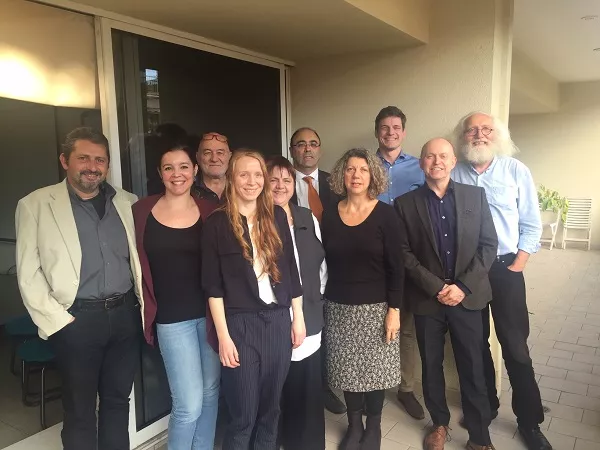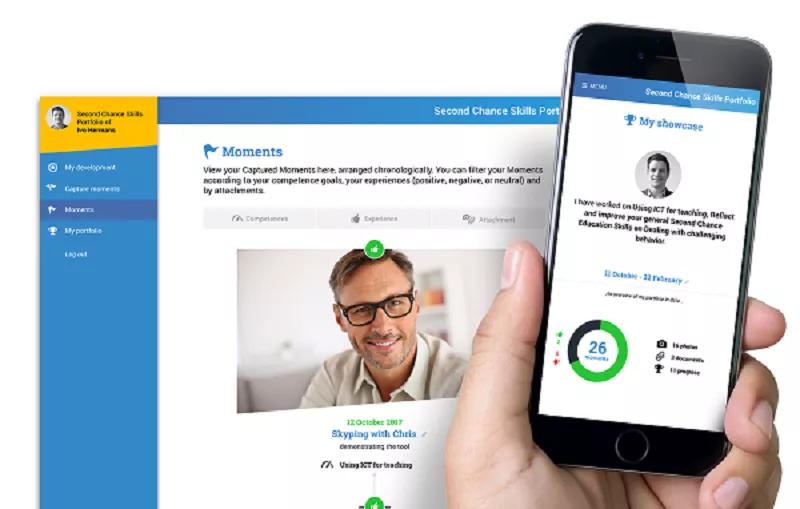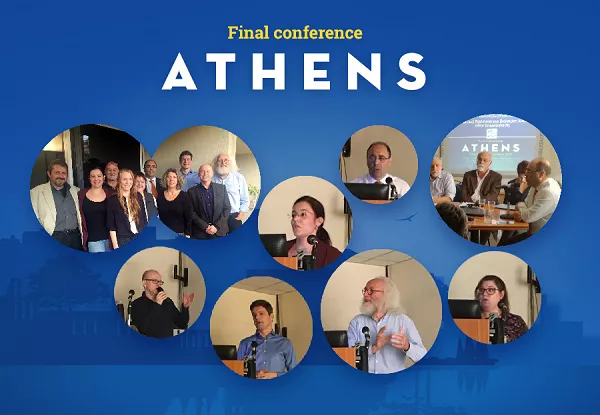EPODS: online professional development of teachers in second-chance education

'Teachers need a toolbox in order to be able to develop as professionals,' says Reinhold Schiffers of the Weiterbildungskolleg in Mönchengladbach. 'First-time teachers in particular need tools to avail themselves of situation-specific additional training. They are confronted with situations that they do not instantly know how to respond to.'
The Weiterbildungskolleg is one of the partners in the EPODS (onlinE PrOfessional Development in Second-chance education) project launched by Betawerk B.V. in 2016. This project consists of an online platform where teachers can find what they need to further their professional development, offering them tools and opportunities to take courses.
Learning from each other
A total of seven partners are involved in the project. Schiffers: 'Each of the partners has contributed their own relevant expertise to the entire group, such as ICT, online learning, vocational education for minorities and competence development for teachers in second-chance education. Betawerk supplied the tools. The partners represent Greece, Cyprus, the UK, Germany and Italy. We cover a large part of Europe with our project!
For us, it has been a fantastic opportunity to work across borders, to step away from our traditional approach and familiar systems and to broaden our horizons. The sources on offer have been greatly expanded as a result of the European cooperation and in all of the participating countries we have been able to stimulate the elements that had not yet been fully developed in the country in question. Influenced by each other, we began redefining and redesigning our individual approaches.'
What do you want to learn?
Of course, the project ultimately benefits the target group served by the teachers in second-chance education. This target group consists of people who for whatever reason are not (or no longer) able to participate in regular education. The focus is on their learning objective. The project is in line with the new tendency in adult education to increasingly put the learning objective centre stage, rather than the profile of the target group. As far as the teachers themselves are concerned, the learning objective is the focus as well. Schiffers: 'The tools and sources we offer have been selected and developed at the request of the teachers. We started out by identifying their needs, asking them what they needed in the way of support. We didn't want to adopt an approach that was too large-scale. Although obviously there are large-scale e-learning programmes available for teachers, we kept it small and specific. For example, there is a survival kit for teachers with short videos about current topics and materials for users to explore in more depth, such as: how do you deal with bullying; what do you do if someone's language skills are lacking; et cetera.'

Review
The project concluded at the end of January 2019. Time to take stock: what was positive and which obstacles had to be removed? Schiffers: 'Erasmus+ was the ideal programme for our project: we had access to all of the resources that we needed to achieve our goals. One of the major obstacles was the lack of time on the teachers' part. The hectic pace of their day-to-day work means that teachers often do not take the time to focus on their own development.'
Looking ahead
Excellent products have been developed within EPODS, such as an e-learning platform and an e-Portfolio tool specifically designed for second-chance education teachers. What are the next steps for the project partners? Schiffers: 'It would be good if the group of second-chance course participants had the opportunity to take part in a mobility project, for example for 10 or four days. In order to make this possible in the long term, we have approached the committee in the Dialogue on Strengthening European Identity through Education and Culture framework, as well as the members of the CULT committee in the European Parliament.'
Furthermore, the teachers and suppliers involved have to be able to find the platform. 'We presented ourselves on various social media from the very start,' Katrine Bengtsson from Betawerk confirms. To give an impression of the number of those involved via these channels: there are over 1,000 combined 'followers' on Facebook and Twitter, and the newsletters are sent to some 2,500 individuals and organisations.
Ivo Hermans (Betawerk, project management) adds that contact is also being made with the organisations in the various countries that are involved in the professionalisation of teachers in second-chance education. Once this has been achieved, there will be a solid foundation for connecting the platform with existing initiatives from study programme providers.

To find out more about EPODS, visit the following websites:
- Main page: secondchanceeducation.eu
- SCOODLE: Second Chance mOODLE (training.secondchanceeducation.eu)
- Second Chance Skills Portfolio (skills.secondchanceeducation.eu)
- Facebook group (facebook.com/secondchanceeducation)
- Twitter page (twitter.com/2ndchanceedu)




